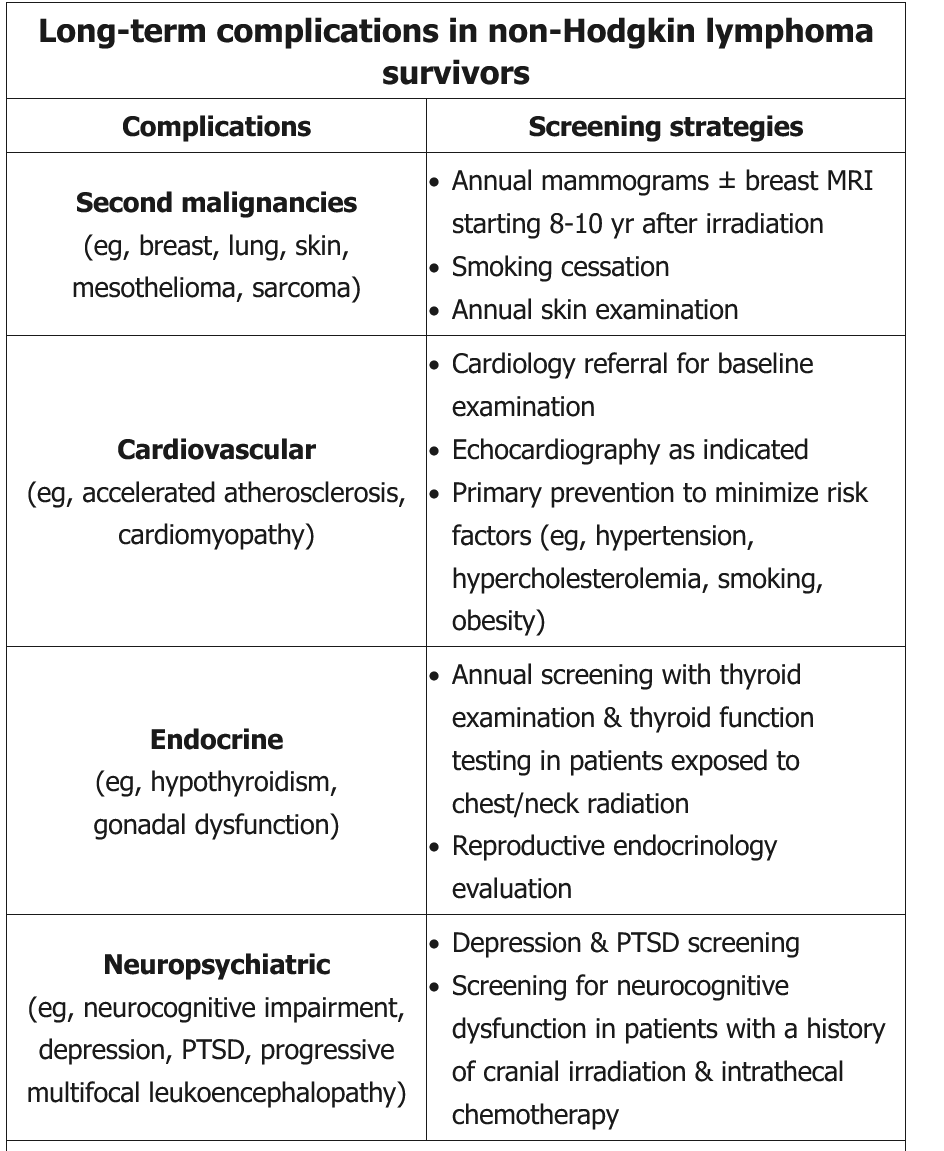long term complications of non hodgkin lymphoma
- related: Hemeonc
- tags: #hemeonc

Non-Hodgkin lymphoma (NHL) survivors are at increased risk for many long-term complications such as second malignancies, cardiovascular disease, endocrine problems, and neuro-psychiatric complications. As the risk of NHL relapse decreases after five years of treatment, long-term care of these patients is increasingly provided by primary care physicians. Internists should be aware of these risks so that NHL survivors can receive adequate preventive care.
The overall risk of second malignancies depends on the patient’s age at treatment and the type of treatment received. Patients who received chest radiotherapy have a particularly increased risk of developing breast cancer, and the risk is higher in younger patients. The mean length of time between exposure to radiation therapy and presentation of breast cancer is approximately 15 years. Monthly self-breast examinations and annual screening mammograms are recommended beginning 8-10 years post therapy or at age 40, whichever comes first.
There is no data to support routine colonoscopy as a screening or surveillance tool in long-term NHL survivors. Age appropriate screening guidelines should be followed.
Routine pulmonary function tests are not indicated for screening or surveillance of NHL survivors; however, smoking cessation should be advised for prevention of lung cancer.
Routine imaging is not recommended beyond five years unless there is clinical or laboratory evidence of relapse.